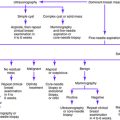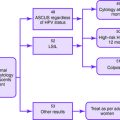Chapter 13 FATIGUE
Fatigue is defined as a subjective state of sustained lack of energy or exhaustion with a decreased capacity for physical and mental work, which persists despite sufficient rest. Fatigue is one of the most common complaints in adults presenting for primary care in the United States and must be differentiated from weakness or exertional difficulties.
Medications Associated with Fatigue
Key Physical Findings
✓ Head and neck examination for signs of anemia, sinusitis, oral ulcerations, postnasal drip, thyromegaly, or lymphadenopathy
✓ Ophthalmologic examination for signs of increased intracranial pressure, retinopathy, or anemia
✓ Cardiovascular examination, including jugular venous distension
✓ Abdominal examination for abdominal masses, hepatomegaly, splenomegaly, or ascites
✓ Examination of the musculature for signs of weakness or muscle atrophy
✓ Skin examination for color changes, rash, skin texture changes, or hair changes
Suggested Work-Up
| Serial weight measurement | To help evaluate for depression or systemic illness |
| Monitoring of temperature | To help evaluate for infection or malignancy |
| Complete blood cell count (CBC) | To evaluate for infection or malignancy |
| Electrolyte measurements | To evaluate for adrenal insufficiency |
| Blood urea nitrogen (BUN) and creatinine measurements | To evaluate for renal failure |
| Glucose measurement | To evaluate for diabetes mellitus |
| Alanine transaminase (ALT) and aspartate transaminase (AST) measurements | To evaluate for hepatocellular disease |
| Total bilirubin measurement | To evaluate for hepatitis or hemolysis |
| Albumin measurement | To evaluate for malnutrition and hepatic synthetic dysfunction |
| Alkaline phosphatase measurement | To evaluate for obstructive liver disease |
| Creatine kinase measurement | To evaluate for muscle disease |
| Calcium measurement | To help detect hyperparathyroidism, cancer, and sarcoidosis |
| Phosphorus measurement | To evaluate for hypo- or hyperphosphatemia |
| Erythrocyte sedimentation rate (ESR) measurement | To help detect collagen-vascular disease, malignancy, endocarditis, abscess, osteomyelitis, tuberculosis, and so forth |
| Thyroid-stimulating hormone (TSH) measurement | To evaluate for hyperthyroidism and hypothyroidism |
| Urinalysis | To evaluate for proteinuria and renal disease |
Additional Work-Up
| Lyme serologic profiles | If Lyme disease is suspected |
| Human immunodeficiency virus (HIV) testing | If the patient is at risk for HIV infection |
| Antinuclear antibody measurements (ANA) | If lupus or other collagen vascular diseases are suspected |
| Hepatitis B and C screening | If the patient is at risk of hepatitis B or C or if the patient has abnormal liver function test results |
| Purified protein derivative (PPD) skin test | If the patient is at risk for tuberculosis or if tuberculosis is suspected clinically |
| Chest radiography | If cardiopulmonary disease is suspected |
| Brucella titers | If brucellosis is suspected clinically |
| Monospot test or Epstein-Barr virus titers | If mononucleosis or Epstein-Barr infection is suspected |
| Cytomegalovirus (CMV) titers | If CMV infection is suspected |
| Blood cultures | If endocarditis or bacteremia is suspected |
| Histoplasma antigen measurement | If histoplasmosis is suspected |
| Adrenocorticotropic hormone (ACTH) test | If Cushing disease is suspected clinically |
| Tensilon test | If myasthenia gravis is suspected clinically |
| Echocardiography | If heart failure is suspected |
| Parvovirus immunoglobulin M (IgM) test | If parvovirus infection is suspected |
| Twenty-four-hour urine test for heavy metals | If heavy metal exposure is suspected |
| Serum angiotensin-converting enzyme (ACE) level | If sarcoidosis is suspected |
Cho WK, Stollerman GH. Chronic fatigue syndrome. Hosp Pract (Off Ed). 1992;27(9):221-224. 227-230
Craig T, Kakumanu S. Chronic fatigue syndrome: evaluation and treatment. Am Fam Physician. 2002;65:1083-1090.
Manzullo EF, Escalante CP. Research into fatigue. Hematol Oncol Clin North Am. 2002:619-628.
Morrison RE, Keating HJ. Fatigue in primary care. Obstet Gynecol Clin. 2001;28:225-240.




